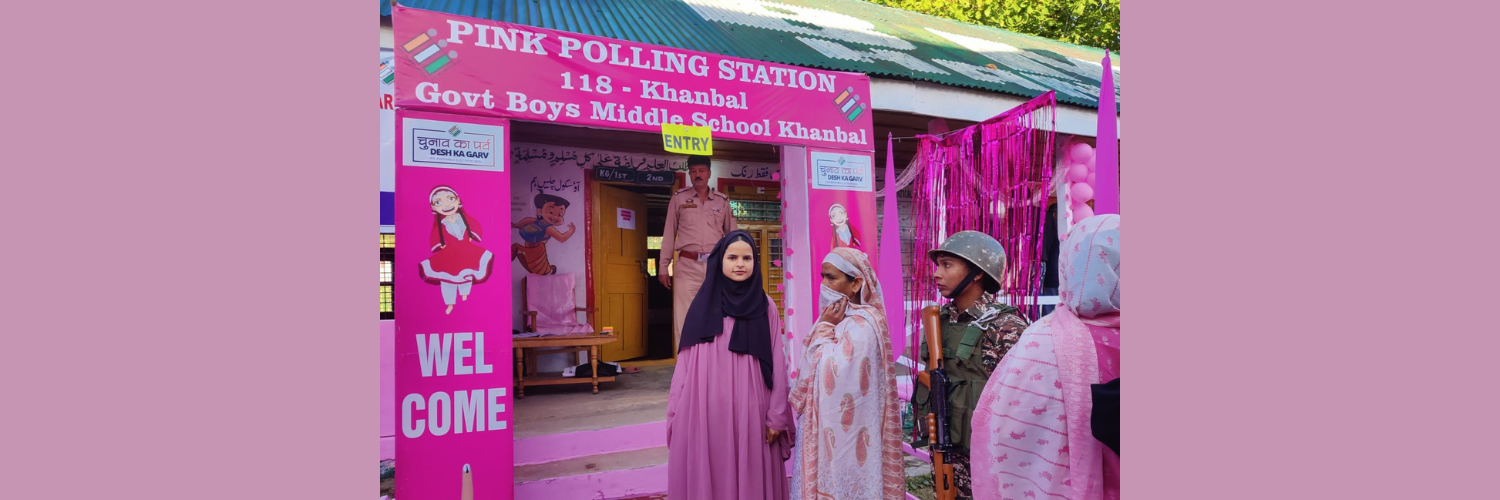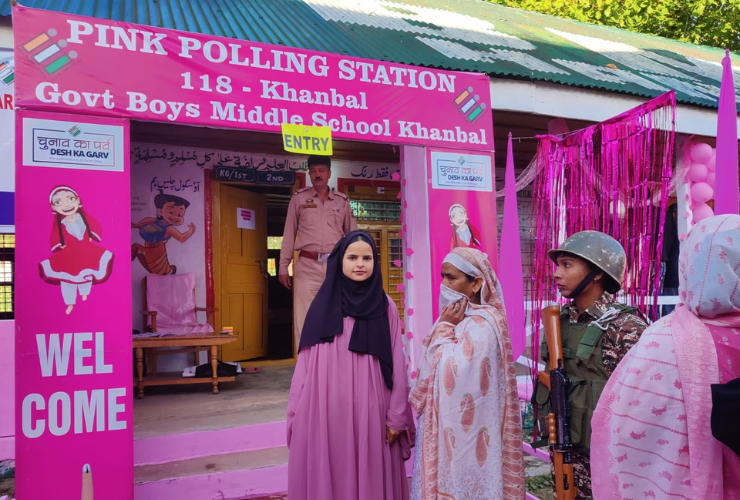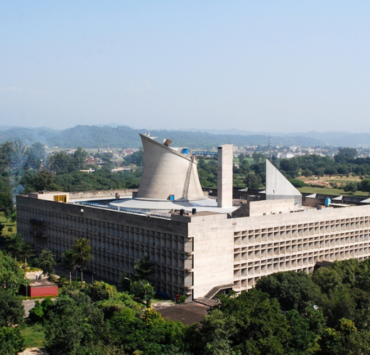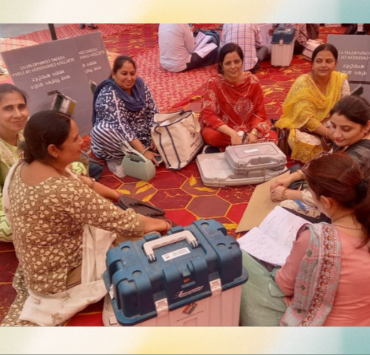
By Rifat Mohidin

For 19-year-old Amina Jan, casting her first vote in the ongoing assembly elections in Jammu and Kashmir was both exciting and challenging. These elections, being held in the region after a decade, represent a personal milestone for young voters like Amina, a resident of Tral village in Pulwama district. It is also, obviously, a significant moment for the region.
The first phase of polling took place on September 18 for 24 seats, followed by the second phase on September 25 for 26 seats, and the final phase on October 1 for 40 seats. The results will be announced on October 8.
For Amina, participating in the democratic process after years of political uncertainty brought a sense of hope and empowerment, even amid the challenges that continue to face the region. The last elections in the region were held in 2014 when she was just nine. Now a college student, Amina reflects on the drastic changes that have taken place over the past ten years. She says that it has been difficult for young people like her to come to terms with the political and social shifts that have reshaped the region since 2019. Casting her vote feels like a significant step in navigating this new reality, but uncertainties remain profound for her generation. “So many changes have taken place here that it is hard to comprehend. There is uncertainty, fear, and a lot of stress in the minds of people, particularly the youth. I am hopeful that my vote will change our situation. It feels like a great form of expressing our choice and dissent,” she says.
The ongoing assembly elections in Kashmir are significant as they mark the first local elections since the removal of the region’s special status on August 5, 2019. On that day, the government revoked Kashmir’s limited autonomy, sparking widespread discontent. To contain potential unrest, the government then imposed months of communication lockdown and strict restrictions on movement. Many young people say that these elections offer a critical moment for the people of Kashmir to express their voices in a changed political landscape, though the newly elected government will still operate under limited powers in a union territory.
These polls represent a return to democratic processes, offering the people a chance to elect local representatives to address their concerns, many young people say. They are hopeful that elections will lead to solutions for their everyday issues. “For young people like me, jobs are the top issue. There are so many men and women with advanced degrees, but they still have no jobs. There’s no one they can approach to address these problems,” says Shaista Farooq, 27, who cast her first vote during the second phase of the election on September 25 in Beerwah village, Budgam district. “If we choose a leader, tomorrow we can hold them accountable. Having a local government is very important for us. Right now, we feel alienated,” she added, echoing the sentiment of many young voters hoping for change through these elections.
Farooq, who pursued her master’s degree in Science from a university in Kashmir, has been struggling to secure a job. Unemployment in Kashmir stands at 18.3 percent which is more than double of national average.
“Even private jobs are scarce. This is a major source of stress among young people, and it’s one of the reasons why thousands of us are coming out to vote with so much hope,” said Farooq, highlighting the deep frustration felt by educated youth facing unemployment.
Sana Amin, 29, a first-time voter from Shopian district, said that the local representatives will get an opportunity to address critical issues such as infrastructure and healthcare in the remote villages of Kashmir. “In villages like mine, women face numerous challenges regarding maternity healthcare. Many have to travel to Srinagar for proper treatment related to maternity issues, and local representatives are meant to address these concerns. Unfortunately, they have been largely ignored,” she explained. “During harsh winters, tribal women in my village often have to be carried on cots to receive medical care for maternity-related issues.”
This election is witnessing a surge in the number of candidates contesting without any party affiliation, with some figures putting the number as high as 44 percent. The absence of a locally elected government since 2018 when the last government by the regional Peoples Democratic Party (PDP) and BJP fell apart after the latter withdrew its support, has created a political vacuum and disconnect between the people and the government’s bureaucratic administration.
As Sana Amin says, “For too long, women and their issues have been overlooked. We hope the new government will learn from the past. We are giving them another opportunity to make a difference.”
Rifat Mohidin is an independent journalist based in Kashmir
Edited by Nisha Susan




